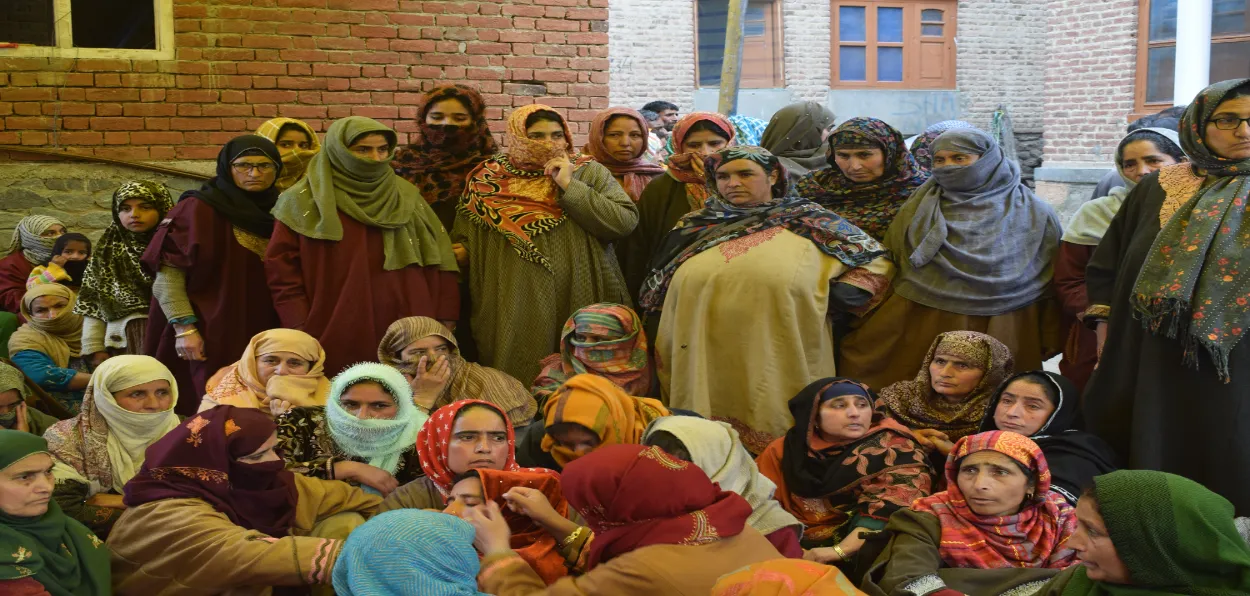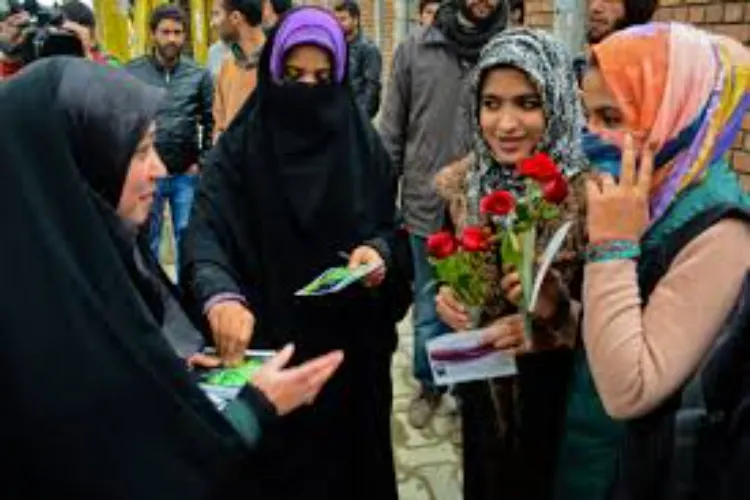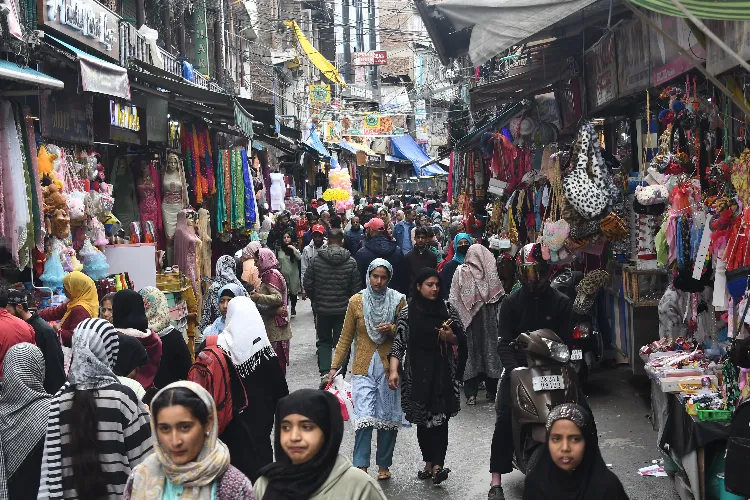
Firdous Khan
In Islam, it’s mandatory to give a share of parental property to daughters and sisters as per the provisions of the Holy Quran. The Holy Book orders that daughters be given one-third of the father's property. Despite this, there are umpteen cases where men manipulate the situation to deprive women – sisters, daughters – of giving them their share.
As the social norms of our society are women prefer to keep mum over this injustice than speak out; she prefers to remain hungry than go out speaking against the injustice meted out to her by the members of her family.
Despite Quran’s instructions, usually, sisters and daughters give up their rights in the property happily, or else they are forced to. Often it happens that at the time of the division of property, the sons of the family divide everything among the male heirs without the knowledge of their sisters. They believe that only sons have property rights; daughters are strangers and belong to their husband’s families. Or they argue that a huge amount has been spent on arranging the wedding of daughters, and they are given dowry.
.webp)
These days money is also spent on their studies, the outcome of which as per the chauvinistic males is of no use to the girls’ family. Some brothers even calculate the amount spent on hosting their sister, when she comes to her maternal home with her husband and children. They argue that money doesn’t grow on trees. If the daughters insist on taking their share of the property, the brothers’ family usually have cut-off ties with her. This means that the doors of her maternal home are closed for her.
As it happened, in Indian families, daughters have an emotional attachment to their maternal home, so they prefer to give up on their rights to maintain their relationship with their brother and his family. She is embarrassed to even speak of it.
This, however, leads to many Muslim daughters who hail from rich families and their in-laws are not well-to-do, to face the dilemma of practical life. Some women are married into families where the income is less; the women have to toil to make ends meet. Some even go to work after finishing all their chores at home and taking care of the family.
If a woman in such a condition seeks her share in the property left behind by her rich parents, even that is denied to her by her brothers.

Muslim women
This is the story of four sisters, who want to remain anonymous, whose parents left them a huge share of the property, but their brothers didn’t want to give them this share. This is the incident in the Moradabad district of Uttar Pradesh.
Zebunnisa (name changed) has a 13-year-old daughter. She works along with her husband in a factory in Noida, UP. They live in a rented house. As both go to work, they have left their only daughter in the care of a close relative. The family's financial condition is not good.
Zebunisa says they left their daughter with a relative with a heavy heart. As both of them had to work to make ends meet, she could not stop going to work.
They sent money to the relative every month for the upkeep of their daughter. On Eid when Zebunisa said she went to meet her daughter she was pained to see that while all the children of the family were wearing new clothes her daughter was wearing the old ones. Also, she was made to do the chores while other children played and enjoyed themselves.
She could only shed tears of helplessness but had no provision to get her daughter back.
She realized that only if she gets a share of her father's property, her family’s life would change. She and her sisters have been asking their brothers for their share in their parent’s property for years.
Initially, the brothers kept mum but now they told them that there is no chance of the sisters getting any property left behind by their parents. Zebunisa is too hard-pressed for money to go to Court against this injustice.
The other sisters are also almost sailing in the same boat. Her other sister Shazia and her husband also work hard.
Shazia says she is keen to give the best education to her only child – a daughter. She says she would have never asked for her share of the property if she had other means.
She has not been feeling too well, lately; and even her husband is not so healthy. The family has to spend a good share of its income on medical bills and treatment. She says if she gets her share, it will help her defray some of the expenses. She also says she would deposit some of the money in the bank for her daughter’s education and wedding.
She says at least the money could be used for giving a good life to their daughter.

Muslim women
Shazia’s husband says “I am not interested in the money but Shazia is keen to get her share in the inheritance.”
Similarly, his third sister Nagma also works to run her household. Her husband is a daily wager with a meager income. They have two children.
Nagma says that her brother is quite rich. If she is given her share in the inheritance, Nagma wishes to start a boutique.
The financial condition of his fourth sister Shabnam is also not good. Her husband works in a beedi factory and the family lives on his small income. Shabnam says that all the sisters have a one-third share in the properties left behind by their parents. “Allah has given this right to us, so we need our share,” she says.
Shabnam says her brother is today the owner of two big ancestral houses. Apart from this, he also has orchards and these give income.
Shabnam says she doesn’t care if her brother severs her relationship with her only because she is asking for her due share of the property. “Of what use are such brothers who take away the rights of their sisters and lead a peaceful life?” she says.
She says that after the death of their father, she broached this subject with her brother. He told her that her share had been spent on arranging her wedding. He said there was no question of giving one-third of the property to the sisters.
One wonders how many sisters and daughters like these four sisters have been deprived of their rights.

Advocate Mohammad Rafiq Chauhan
Mohammad Rafiq Chauhan, a senior advocate of Karnal, Haryana, says that sisters deprived of ancestral property can go to court and file an application under the Indian Succession Act-1925. It is noteworthy that the rules of Muslim and Hindu succession laws are different. Hindu succession rules are codified. Their succession is determined under the Hindu Succession Act-1956, whereas the succession rules of Muslims are not codified. This can be determined under Quran and Hadith i.e. prevalent traditions and Indian Succession Act-1925.
ALSO READ: I did it for dignity of my daughters and all women: Shukkur who remarried under SMA
There are two forms of succession. The first is testamentary succession and the second is intestate succession. Testamentary succession is applicable in cases where the deceased has written a will. The rules of will for Hindus and Muslims are different. While Hindus have the full right to make a will with certain conditions, a Muslim can bequeath only one-third of his property with the consent of his heirs. In this, the property is distributed according to the will. In the absence of a will, the property is divided according to the rules of intestate succession. Under the Indian Succession Act-1925, the intestate succession law has been made keeping in mind all the religions. That's why he plays an important role in solving the succession of all religions.
(The writer is poet, a storyteller and journalist)
